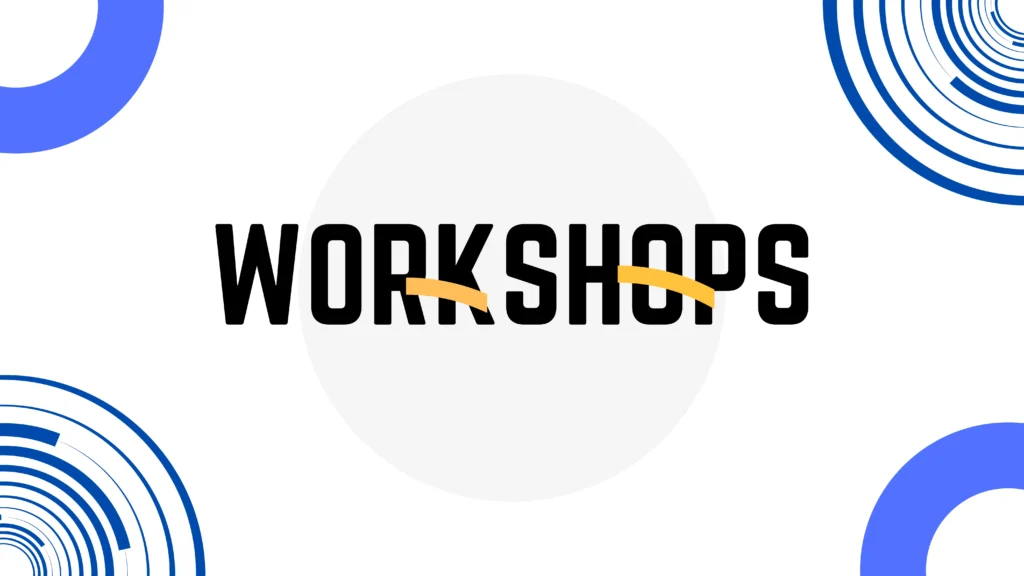
Concurrent Sessions
10:30 am- 12:00pm
Women Leaders
In this workshop, a panel of women leaders will share their journey to leadership, how they learned to use their voice to advocate for the communities they serve, impact of culture and traditions on hindering or facilitating women’s leadership, and the role of women in ensuring access to leadership opportunities and building community agency/influence. This is an interactive workshop and audience participation is encouraged.
Sahra Farrah, Executive Director- Somali Community Services of Seattle
Minh-Duc Nguyen, Executive Director- Helping Link
Risho Sapano- Executive Director- Mother Africa
My-Linh Thai- Washington State Representative
Moderator: Angel Taherazer
Refugee Mental Health: Challenges and Policy Implications
Not since World War II has there been a mass exodus of people fleeing conflict, war, and persecution. Refugees are courageous people who have been forced to flee their homelands. Yet, exposure to mass violence, trauma, and additional stressors experienced after post-resettlement, compounded by racism, discrimination, and marginalization of their cultural practices, increases their risk factors for adverse mental health outcomes. This presentation will address refugee mental health, examines policies, and recommends strategies for advocacy, intervention, and early and ongoing mental health care for refugees. The workshop will also address the protective factors in refugee communities and how representing refugees in a sick role may have negative consequences because it raises questions about the capacity of refugees for self-determination.
Dipa Gautam Acharya, Clinical Case Manager- Asian Counseling and Referral Services
Ambika Dhungyel, Mental Health Counselor- Asian Counseling and Referral Services
Chau Huynh, MSW, Clinical Case Manager- Asian Counseling and Referral Services
Maliha Mirza, MSW- Behavioral Health Social Worker- HealthPoint
Gayhtoo Thaw, MSW, Clinical Case Manager- Asian Counseling and Referral Services
Moderator: Merih Mehari, MSW
Refugees and Healthcare System: A Call for Different Approaches to Heath Education, Outreach, and Access
For refugees, forced migration increases susceptibility to poor health and increases health inequity. Exposure to multiple stressors, pre- and post-resettlement such as war, trauma, employment, housing, language, scarce financial resources, and lack of access to health information, profoundly impact refugees’ health. Without the ability to speak and read English well, refugees are at a great disadvantage in accessing health information, communicating with healthcare providers, complying with medication directions, understanding medication side-effects, making appointments, engaging in preventative care, and advocating for themselves. Discussion will focus on social determinants health for refugees, chronic health issues, health care system, and recommendations for health policies that decrease health disparities and increase health equity for refugees.
Hawa Elias, Public Policy Analyst- Community Health Plan of Washington
Navid Hamidi, Executive Director- Afghan Health Initiative
Reza Pedram, Program Director- Afghan Health Initiative
Moderator: Milica Veselinović
U.S. Refugee Resettlement Policy: Time for Re-evaluation
Employment and English language proficiency are two key components to refugees’ ability to pull out of poverty and to have equal access to educational, economic opportunities. Inability to speak English has profound impact on refugees’ health, access to housing, self-advocacy, civic and political participations engagement, parenting, and connections to the broader community. Since the passage of the 1980 Refugee Act, the main goal of refugee resettlement program has been to move refugees into paid employment within 3-6 months after arrival to ensure self-sufficiency. Panelists will share their perspectives and experiences on the effectiveness of the current policy on refugees long term economic success, and will offer policy change recommendations.
Gyanendra Subba MBA., Program Manager- Workforce Development Council
Abdirahman Omar, Language Access Coordinator- Seattle & King County Public Health
Policy 101: Owning Your Political Power
Public policy is anything a government chooses to do or not to do and affects and influences every member of society. Refugee settlement policies at the national and local level influence refugee integration by shaping refugees’ ability to participate socially and economically. If you are interested in becoming a policy advocate and want to learn more about policy formation, where to start, or how to get involved, this session will provide opportunities to dive into the fundamentals of how public policies are formed and ways to get involved in amplifying the concerns of refugee communities.
Dr. Marjan Didra – King County Policy and Community Engagement Specialist
Refugees in Apprenticeship Pathways: Addressing Low Enrollments
Youth and adult refugees come to this country seeking good jobs but can’t afford to attend traditional college to obtain a degree. Other options exist such as short-term training and apprenticeship programs, but the number of refugees going into this pathways remain very low. Panelists will discuss what is preventing refugees entering and completing short-term trainings and apprenticeships and offer strategies to make successful changes.
Karen Dove, Executive Director- ANEW
Shana Peschek, MBA, Executive Director- Machinists Institute
Rigoberto Valdez Jr., Presidents’ Organizing Initiative Coordinator– MLK Labor
Access to Supplemental Security Income and Resources for Families with Special Needs Members
Many refugees who are disabled and are applying for Supplemental Security Income (SSI) for the first time will encounter multiple barriers in accessing benefits and obtaining income security. For example, some applicants may lack medical evidence in the U.S., some may experience mental health challenges related to war and trauma or are unfamiliar with the SSI application process. This workshop will provide an overview of the services available, SSI eligibility, the application process, and how decisions are made on SSI applications for noncitizens with disabilities. Finally, this session will address current language access policies and how these policies should be used to remove barriers for noncitizen SSI applicants, and the resources most needed to support families with special needs.
Huy Nguyen, Executive Director- Benefits Law Center
Diana Atanacio, Programs Manager – Open Doors for Multicultural families
Reducing Home Environmental Health Hazards
Many refugees arriving in the United States face multiple health challenges. Toxic cleaning products may further add to health problems. Health promotion and education are critical in empowering individuals to understand the effects of cleaning products that contain chemicals potentially damaging to their health. Panelists will share information on reducing home environmental health hazards and safely using, cleaning, and maintaining their homes. Participants will leave with new knowledge about safer cleaning recipes that can reduce exposure to toxic chemicals.
Ahado Abdi, Health Promoter- Mother Africa
Kholoud Naser Aldeen, MBA, Program Manager- Mother Africa
Rasha Elshaarawi, Senior Program Coordinator- Mother Africa
Concurrent Sessions
1:45- 3:15pm
Strategic Use of the Media: Amplify Refugee Voices
Negative portrayals of refugees in the media can influence how the government determines its refugee policies. The media can also be important in garnering support for refugee issues and mobilizing the community. This workshop will introduce participants to how to draft compelling messaging, issue framing, prepare for a media interview, and storytelling. KUOW Community Engagement staff will share their expertise and guide participants in exercises to engage with the media and prepare effective messaging.
Zaki Hamid, Director of Community Engagement- KUOW
Kamna Shastri, Community Outreach Coordinator- KUOW
U.S. Refugee Resettlement Program
This workshop covers the history of the U.S. refugee resettlement system, current refugee resettlement priorities for the U.S. Refugee Program, changes that have occurred in refugee admission in the post-9/11 and since 2016, and how to help rebuild the refugee resettlement system.
Medard Ngueita, Executive Director – World Relief
Sarah Peterson, MSW, Washington State Refugee Coordinator- Office of Refugee and Immigrant Assistance
Mohammad Nasir Rizaee, Resettlement Director – International Rescue Committee
Parent involvement: Refugee Parents Recommendations to Educators and Policymakers
Refugee parents share their views of schools and their experiences with school systems, and provide recommendations on how to support refugee parents and students to ensure academic preparation and success. Discussion focuses on understanding resettlement challenges, hopes and dreams for their children, and including parents in the development of educational policies and services for refugee students.
Al-Abedi
Rand Al Hamadi, Social Services Department Manager- Iraqi Community Center of Washington
Fawaz Alhousaini – Syrian Parent
Regina Elmi, Executive Director- Supporting Partnerships in Education and Beyond
Moderator: Marwa Sadik
The Funders’ Perspective
Local funders share their guidelines and application processes, their experiences in working with refugee organizations, and tips on successful grants.
Aileen Balahadia, Program Consultant – Seattle Foundation, Neighbor to Neighbor
Sola Plumacher, Funding Policy Advisor – City of Seattle Human Services Department
Aviva Stamfer, Grants and Programs Director -Washington Women’s Foundation
Gyanendra Subba, MBA, Program Manager- Workforce Development Council
Moderator: Natalie Thomson
Refugee Youth: Agency, Hope, and Future
Refugee youth share their experiences and challenges in the formal school systems and identify facilitators and barriers to successful transition from school into higher education and employment. Recommendations for decision-makers in the education, vocational training, and employment sectors are discussed.
Sadia Abdullahi
Hamdi Junedi
Shakira Omar
Sadaf Zaman
Moderator: Yohannes Beshi
Exclusion Through Data Invisibility
Refugees face data scarcity as there is no active process to collect data on our refugee communities in a systematic manner- the U.S. Census federal datasets do not classify refugees by their racial/ethnic group. This renders them invisible to the policy and decision makers and diminishes refugees’ political power. This aggregation of data makes it difficult to identify challenges unique to the refugee population and to develop more targeted and nuanced interventions. This workshop will discuss the impact of data invisibility, especially combined with a political and social environment in which refugees are demonized by a portion of the public and of political actors, creates tremendous barriers to their ability to build economic self-sufficiency and stability, and achieve positive health and educational outcomes.
Tsegaye Gebru, Executive Director- Horn of Africa Services
Tamthy Le, Executive Director- Kandelia
Minh-Duc Nguyen, Executive Director- Helping Link
Moderator: Dr. Marjan Didra
Housing and Homelessness
As government and philanthropy pours millions of dollars into addressing homelessness, our homeless refugees remain entirely invisible because there is a lack of data about refugees experiencing homelessness and their needs. The lack of data has resulted in inefficiency and inequitable allocation of funds and service delivery. The panel will discuss housing access and homelessness among refugees, and the impact of lack of data and policy on our refugee populations. Recommendations on tailored policy and programs are offered.
Mohammed Akmoosh- Community Advocate
Semone Andu, Regional Health Administrator – Healthcare for the Homeless Network
Modou Nyang , Community Capacity Specialist- King County Regional Homelessness Authority
Shamso Yusuf- Community Advocate
Moderator: Dr. Kristen Moss
Addressing Substance Use in Refugee Communities
Despite exposure to various socioeconomic risk factors, refugees tend to use and abuse substances at lower levels than native-born Americans. Although there is no data that breaks down drug abuse in our refugee communities, anecdotally, we know it is impacting our communities, especially our young people. In this workshop, participants will learn about the signs of drug abuse and how to navigate treatment and recovery systems. Participants will also gain knowledge about addressing stigma around addiction that may prevent seeking help. The presenter will share recommendations on outreach and prevention strategies specific to refugee communities.
Flora Lansburgh, MPH, BSN, RN- Public Health – Seattle & King County, Healthcare for the Homeless Network
Ellie Navidson, MS, RN, Advanced Practice Nurse Specialist- Public Health – Seattle & King County, Healthcare for the Homeless Network
Access to Early Childhood Education: What’s working and what needs to change?
High-quality Early Childhood Education can be a powerful avenue for supporting our refugee children social, emotional, language, and cognitive development, and for supporting their well-being in the short and long term. This workshop will address current programs, challenges, and provide policy recommendations in ensuring access to Early Childhood Education that are culture based and community informed.
Decca Calloway, Program Services Director- Puget Sound Educational Service District
Mehret Habte Mehanzel, MSW, Founder and President – Afro-Moves Learning Institute
Susan Lee- Early Learning Director- Refugee Women’s Alliance
Sharifa Sabrie, Site Manager, Educare Early Learning and Heritage Head Start- Puget Sound Educational Service District
